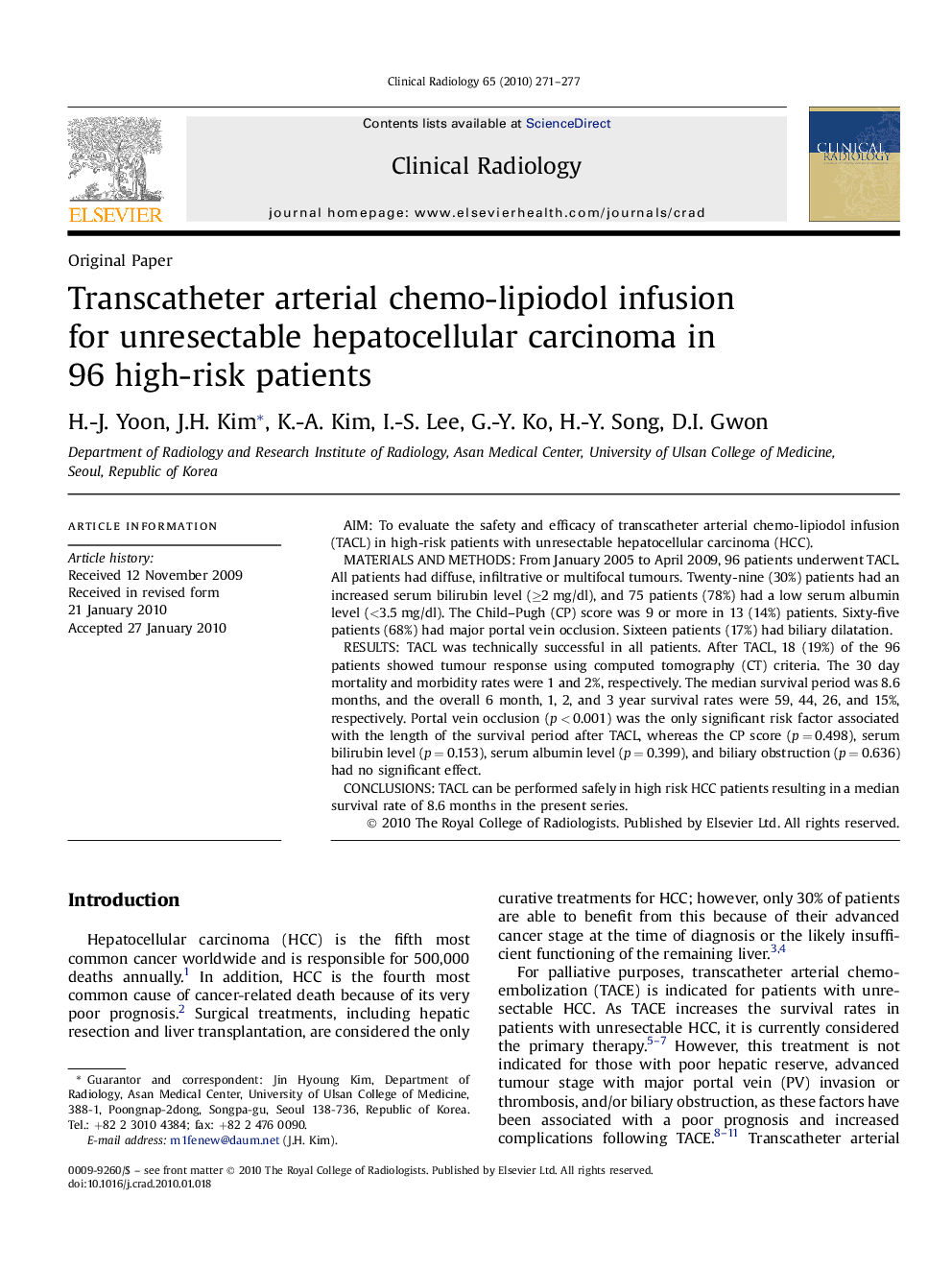| Article ID | Journal | Published Year | Pages | File Type |
|---|---|---|---|---|
| 3983772 | Clinical Radiology | 2010 | 7 Pages |
AimTo evaluate the safety and efficacy of transcatheter arterial chemo-lipiodol infusion (TACL) in high-risk patients with unresectable hepatocellular carcinoma (HCC).Materials and methodsFrom January 2005 to April 2009, 96 patients underwent TACL. All patients had diffuse, infiltrative or multifocal tumours. Twenty-nine (30%) patients had an increased serum bilirubin level (≥2 mg/dl), and 75 patients (78%) had a low serum albumin level (<3.5 mg/dl). The Child–Pugh (CP) score was 9 or more in 13 (14%) patients. Sixty-five patients (68%) had major portal vein occlusion. Sixteen patients (17%) had biliary dilatation.ResultsTACL was technically successful in all patients. After TACL, 18 (19%) of the 96 patients showed tumour response using computed tomography (CT) criteria. The 30 day mortality and morbidity rates were 1 and 2%, respectively. The median survival period was 8.6 months, and the overall 6 month, 1, 2, and 3 year survival rates were 59, 44, 26, and 15%, respectively. Portal vein occlusion (p < 0.001) was the only significant risk factor associated with the length of the survival period after TACL, whereas the CP score (p = 0.498), serum bilirubin level (p = 0.153), serum albumin level (p = 0.399), and biliary obstruction (p = 0.636) had no significant effect.ConclusionsTACL can be performed safely in high risk HCC patients resulting in a median survival rate of 8.6 months in the present series.
